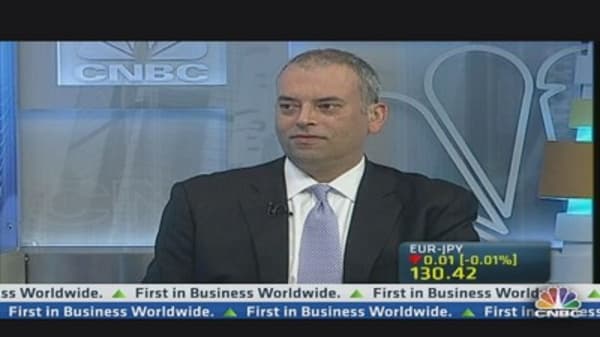While the violent selloff in emerging market currencies has spared few, there's one currency that has emerged from the storm unscathed: the Chinese yuan.
Over the past month, the yuan has bucked the downdraft, rising 0.3 percent against the dollar - a stark contrast from peers such as the Indian rupee and Indonesia rupiah that have fallen between 7-7.5 percent over the same period amid escalating fears around the Federal Reserve winding down its monetary stimulus.
(Read more: Is this currency about to follow the rupee's crash course?)
The country's trade surplus and improving economic data are luring investors back into the currency, as concerns of a hard landing in the world's second largest economy fade.
"China's in a stronger position than most emerging markets. It's current account (surplus) is a big thing, the economy is still well managed," said Nizam Idris, head strategist of fixed income and currencies at Macquarie, who sees the dollar-yuan pair strengthening to 6.0 as soon as the year-end, from 6.12 currently.





